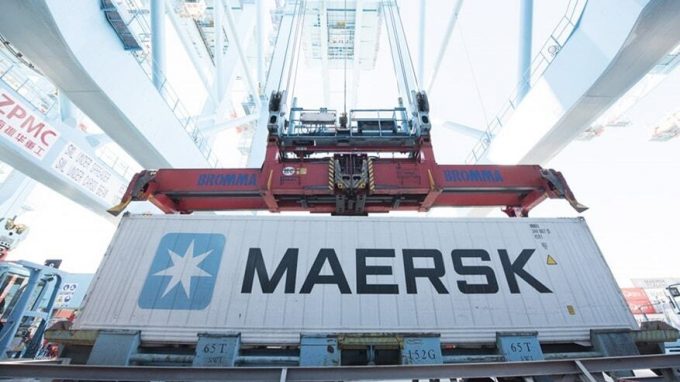Box lines – billions ready to burn in market share fights
…rather than M&A
XOM: GO GREEN NOWKNIN: BOUNCING OFF NEW LOWS HON: BREAK-UP PRESSURECHRW: UPGRADESZIM: LAGGARDFWRD: LEADINGMAERSK: OPPORTUNISTIC UPGRADETSLA: GETTING OUTDSV: DOWN BELOW KEY LEVELLINE: DOWN TO ALL-TIME LOWS AMZN: DEI HURDLESAAPL: DEI RECOMMENDATIONAAPL: INNOVATIONF: MAKING MONEY IN CHINAMAERSK: THE DAY AFTER
XOM: GO GREEN NOWKNIN: BOUNCING OFF NEW LOWS HON: BREAK-UP PRESSURECHRW: UPGRADESZIM: LAGGARDFWRD: LEADINGMAERSK: OPPORTUNISTIC UPGRADETSLA: GETTING OUTDSV: DOWN BELOW KEY LEVELLINE: DOWN TO ALL-TIME LOWS AMZN: DEI HURDLESAAPL: DEI RECOMMENDATIONAAPL: INNOVATIONF: MAKING MONEY IN CHINAMAERSK: THE DAY AFTER

Maersk’s liner services recorded a $27m operating loss in the third quarter, as “freight rates declined at an accelerated pace”, it said.
Moreover, with the “market environment worsening” and a group ebit loss expected this quarter, the Danish shipping and logistics group is taking radical action and is in the process of reducing its global headcount by 10,000 – with 3.500 job losses still to come.
CEO Vincent Clerc said that there was a “very uncertain trading environment with significant risk of further downside potential”, which he attributed in part to tonnage oversupply.
“Since the summer we have seen overcapacity across most regions triggering a new wave of price reductions, at the same time scrapping and idling of tonnage has not yet picked up. We therefore expect further headwinds as the market conditions are worsening,” he said.
“The real trick now is to know what is going to happen with spot rates during the contracting season in the next few months, because that will have an impact on the renegotiation of contracts,” he added.
Maersk has some 68% of it liner volume under contract, for which it enjoys a premium over spot rates, but Mr Clerc expressed concern that if spot rates failed to recover, contracts would have to be “reset” at lower levels.
“If Q4 is not delivering some kind of improvement [in terms of the spot market], then I think we are looking at a pretty dire situation in 2024,” warned Mr Clerc.
On the top line, group turnover in Q3 declined by 46% on the previous year, to $12.1bn, for an ebit of $538m and a net profit after tax of $600m, against $8.9bn in Q3 22.
Revenue from Ocean collapsed by 56%, to $7.9bn, despite an above industry par 5% increase in liftings in the quarter, to 6.3m teu.
However, Maersk’s average rate slumped 58% year on year, to $1,048 per teu, resulting in an ebit loss of $27m.
Meanwhile, in its ‘poster child’ logistics & services sector, revenue fell 16%, to $3.5bn, with organic revenue down 22%, impacted by a downturn in the retail and lifestyle sectors of its business, especially in North America, resulting in a slump in ebit of 47%, to $136m.
On a more positive note, Mr Clerc said Maersk’s terminal business “remains resilient”, as despite lower storage revenue and 4.1% less throughput across its global terminal network, to 3.1m teu, turnover fell by just a relatively modest 11%, to $1bn, for a 24% decline in operating profit of $270m.
Elsewhere, Maersk’s disappointing Q3 results were boosted by its Towage & Maritime unit producing a net gain of $94m, following the sale of US Marine Management.
Meanwhile, Mr Clerc said he expected “very little impact, if at all” from the EC’s decision not to renew liner shipping’s Consortia Block Exemption Regulation (CBER) next April.
“It changes a bit in the amount of admin that we will have in connection with that, but not our ability to make those VSAs.
“I think we have ample data to show that these alliances and VSAs have been good for the consumer, because they have produced lower-cost networks and, therefore, have resulted in cheaper ocean freights – maybe, when we look at next year, too cheap,” said Mr Clerc.
Comment on this article